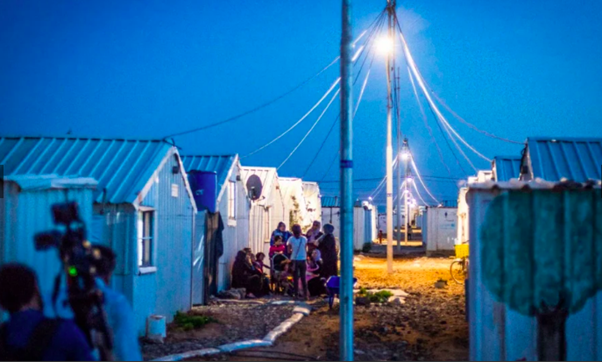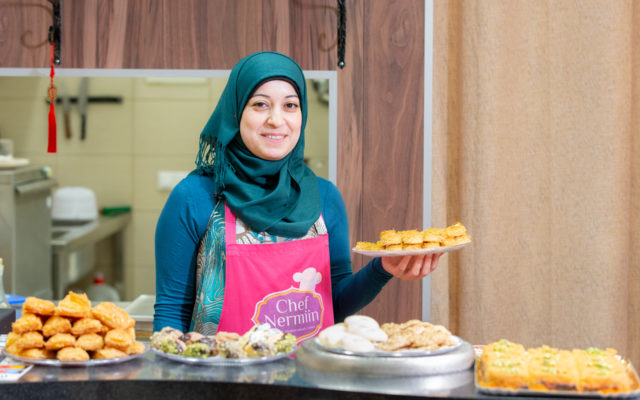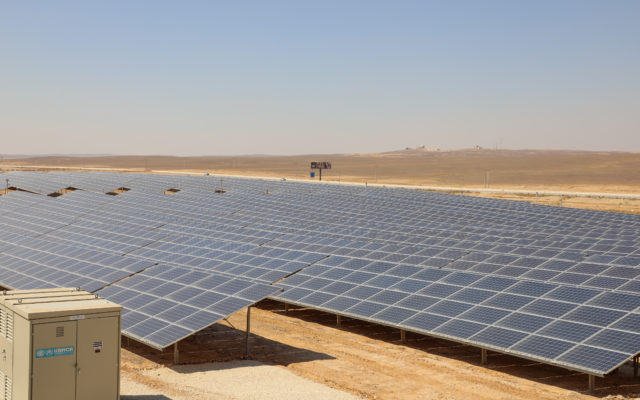Syrian refugee turns trash into treasure in Jordan
In Za’atari refugee camp, one man’s creative spirit and unwavering determination have transformed discarded materials into objects of beauty.
27.07.23
© UNHCR/Shawkat Alharfoush
Ziyad Al-Awaji, also known as Abu Jihad, wakes up before dawn to begin his daily routine of scavenging for discarded plastic and other materials in the garbage dumps at Za’atari refugee camp in Jordan.
As a 64-year-old Syrian refugee, he has experienced his share of hardships, including the loss of his home and livelihood due to the war in his country. But Abu Jihad refuses to give up hope and is determined to have a positive impact on his community and the environment.
He has always been interested in art, even when he was running the restaurant he owned back in Dara’a, in southern Syria. One night, he watched a TV show about how to polish steel. The next day he went to the market and bought some steel and materials to start polishing steel and aluminium. From that day, people started to look for him to do polishing jobs. But what started as a hobby back in Syria has become the centre of his life in Jordan.
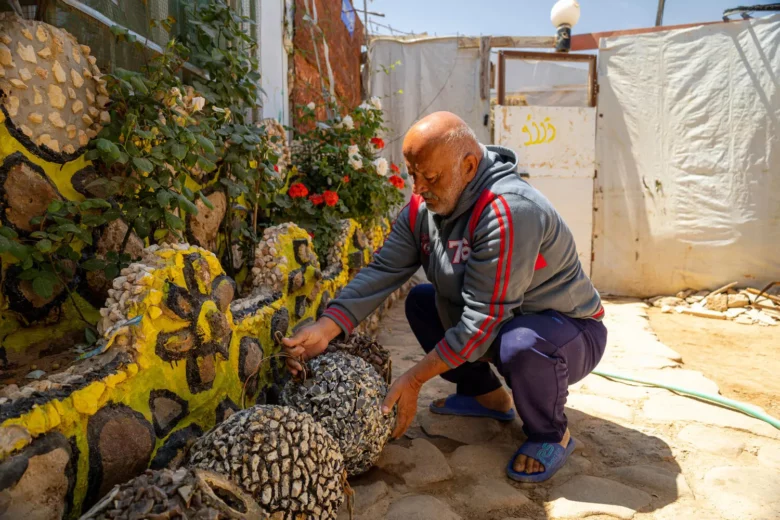
Every inch of the inside and outside of Abu Jihad’s shelter is adorned with carefully crafted artwork. © UNHCR/Shawkat Alharfoush
When he arrived at Za’atari camp in 2013, he immediately started building his home and creating unique objects from discarded materials. His passion for recycling and repurposing was fuelled by the limited resources available in the camp, and he quickly became a master at finding new uses for old objects and turning waste into something both useful and beautiful.
Everything has a second use.
“I reuse whatever material that comes into my hands. I like to give a second life to objects we think are waste. Everything has a second use,” he says.
He would like to open a restaurant in Za’atari but he also dreams of returning to Dara’a one day to rebuild his home and have his entire brood of 12 children and extended family gathered together. Like many refugees, his family is scattered across Syria, Jordan, and Germany.
In the meantime, he spends his days collecting plastic bottles, bags, and other materials, and turning them into unique objects such as flowerpots, lamps, coffee grinders, rainwater tanks, chairs, tables, and more. His workshop, located in a small corner of the shelter where he lives with his wife and seven of his children, is filled with an assortment of tools and materials, and Abu Jihad’s hands are always busy, cutting, shaping, and gluing.
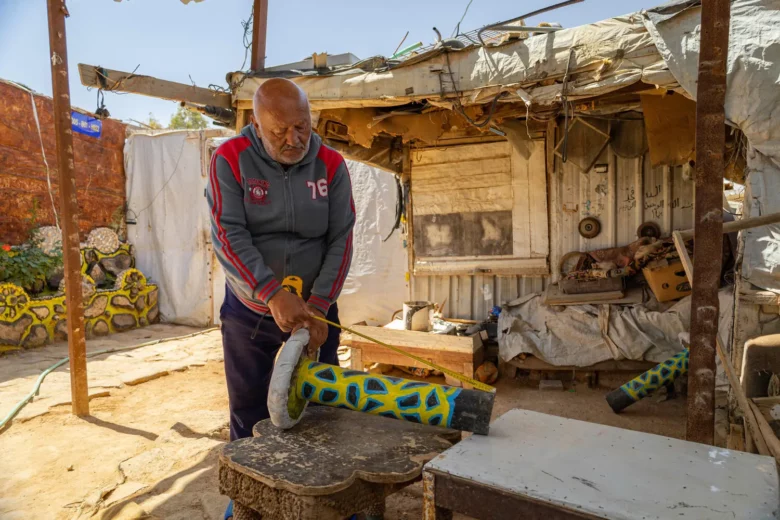
Abu Jihad busies himself in his workshop, located in a small corner of his family’s shelter. © UNHCR/Shawkat Alharfoush
“Abu Jihad’s initiative is a great example of how refugees can positively impact their communities and the environment,” says Suhair Thyabat focal point on environmental sustainability for the UN Refugee Agency, UNHCR, in Jordan. “We need more of these innovative approaches to reduce waste and pollution.”
With some 740,000 refugees registered with UNHCR in Jordan, the country faces additional environmental challenges due to the high demand for resources and the strain on infrastructure. Innovative approaches to waste management, such as recycling and reusing, can make a significant difference in reducing environmental impact and improving sustainability.
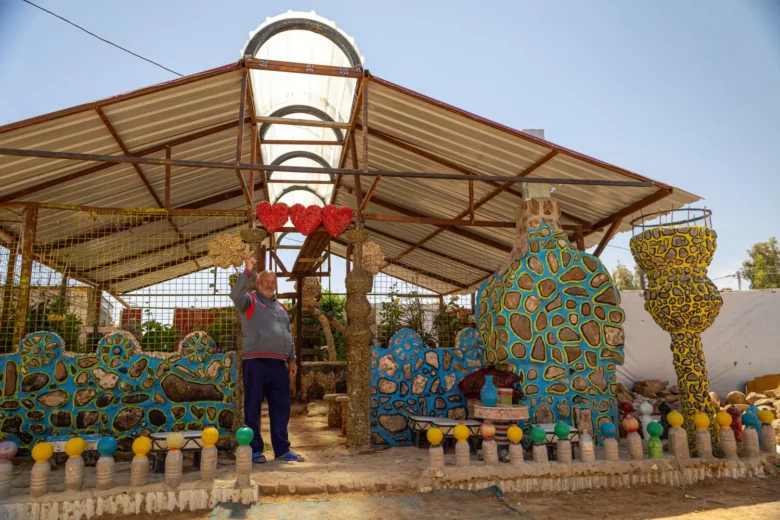
Abu Jihad with some of his recycled creations. © UNHCR/Shawkat Alharfoush
As the world grapples with the devastating effects of plastic pollution, Abu Jihad’s passion for recycling is an example of the power of individual actions to make a difference.
“I want to show people that what they see as waste can be turned into something beautiful,” he says. “It’s my way of contributing to a cleaner environment.”


